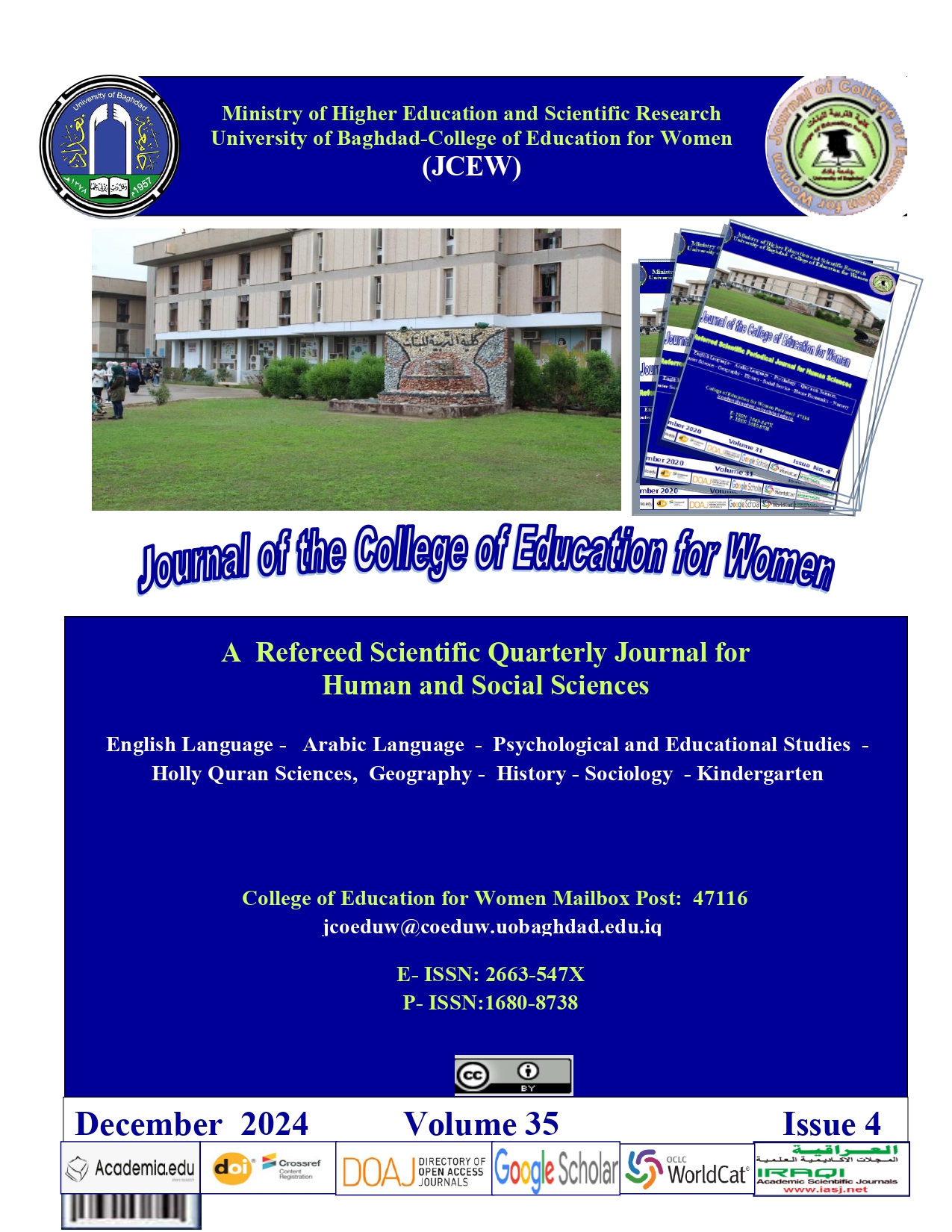صوت الأم: تمثلات الأمومة، الطفولة، واستدامة رأس المال البشري في رواية كمالا ماركاندايا "رحيق في غربال"
DOI:
https://doi.org/10.36231/coedw.v35i4.1777الكلمات المفتاحية:
الطفولة، الصوت المزدوج، النسوية، الأمومة، الاستدامةالملخص
لطالما كانت علاقة الأم بابنتها موضوعاً مثيراً لاهتمام الكاتبات على مر العصور، حيث تُستخدم كعدسة لاستكشاف الروابط المعقدة التي تجمع بين الحميمية والصراع والهوية. وتُعد رواية (رحيق في غربال) للكاتبة كمالا ماركاندايا، التي نُشرت عام 1954، عملاً بارزاً في الأدب الهندي المعاصر. تستعرض الرواية بعمق مفهوم الأمومة والطفولة في ظل التحديات الاجتماعية والاقتصادية التي واجهتها الهند الريفية في فترة الاستعمار. تعتمد هذه الدراسة على النظرية الأدبية النسوية لتحليل الطريقة التي تصوّر بها ماركاندايا أدوار النساء والأطفال ووكالتهم وصمودهم في سياقٍ أبوي وقمع اقتصادي. تكشف الرواية من خلال تصويرها للأمهات عن التحديات المتعددة التي تواجه الأمومة، والتي تجمع بين رعاية الأطفال وضمان البقاء على قيد الحياة في عالم يتغير بسرعة. ومن خلال مزج السرد الشخصي مع الواقع الاجتماعي والسياسي الأوسع، تُثري ماركاندايا النقاش حول هوية الأم، مُظهرة كيف تتنقل الأمهات بين أوجه الظلم النظامي سعياً للحفاظ على رفاهية أسرهن. في صلب هذا التحليل، يتجلى مفهوم ماريان هيرش حول "الصوت المزدوج"، الذي يدعو إلى اتباع منهجية سردية مزدوجة في كتابة المرأة. تتيح هذه المنهجية لماركاندايا الجمع بين الأبعاد الشخصية والجماعية لتجارب النساء، مما يخلق رابطاً بين الصراعات الفردية والنقد المجتمعي. علاوة على ذلك، تسلط الرواية الضوء على الترابط بين الطفولة واستدامة رأس المال البشري، حيث تُظهر كيف يتشكل مستقبل الأطفال نتيجة تضحيات أمهاتهم وصمودهن. من خلال وضع أصوات الأمهات في هذا الإطار الاجتماعي والاقتصادي، تنتقد الرواية البُنى الاستعمارية وتدعو إلى الاعتراف بأدوار النساء كعناصر فاعلة في الحفاظ على الثقافة والاقتصاد. تُبرز هذه الدراسة أهمية التنمية المستدامة، حيث تقدم رؤية دقيقة حول الأمومة والبقاء والمقاومة النظامية في الأدب ما بعد الاستعمار.













